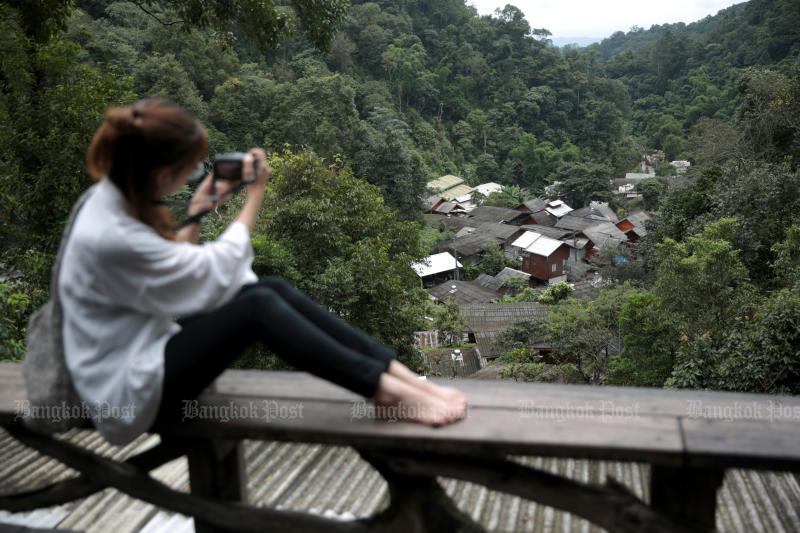
Hotels still face sluggish sentiment for the upcoming four-day weekend holiday, resulting from concern over the economic situation and complicated processes involved in the "We Travel Together" tourism stimulus measure.
As the economy has decelerated because the majority of businesses were affected by the virus to different degrees, many people are now careful about spending on tourism, said La-Iad Bungsrithong, president of the Thai Hotels Association's (THA) northern chapter.
Local tourists prefer road trips with family within a 300-kilometre radius from Bangkok rather than boarding a jet to more far-flung destinations such as Chiang Mai.
For the long weekend, the occupancy rate for hotels in Chiang Mai is 25-26%, of the 30% of hotels that reopened.
Most operators expect a 50% occupancy rate based on surging demand from the stimulus campaign.
Mrs La-Iad hoped the occupancy rate may increase around 10-20% as local tourists tend to book at the last minute.
While locals and private firms are lowering travel expenditure, state agencies will become the real push for an industry rebound soon, she said.
However, hotels in Chiang Mai see few meetings and seminars from government authorities in July and August.
Mrs La-Iad said the government should not open stimulus schemes to all unlicensed hotels, but rather limit them to those in the process of obtaining a licence.
Related authorities should use this opportunity to crack down on illegal hotels, she said.
Sasithorn Kittidhrakul, president of the Krabi Tourism Association, said the complicated process to join the stimulus scheme creates confusion among local travellers and operators, leading to slow bookings in the beginning.
The government should find more appropriate channels to let everyone know about the measure and create better understanding, attracting more participation in the scheme, she said.
For the upcoming long holiday, the average occupancy of hotels in Krabi was still 20%.
Ms Sasithorn said many hotels plan to reopen in September when the weather is nicer and the school is on break.
Small hotels with 20 rooms, villas or hotels that provide meeting facilities are now opening. Before the outbreak, Thai tourists made up only 25% of overall tourism in the province, so many hotels are waiting for international travellers to be allowed to return, she said.
"State agencies are considered the last resort for operators," said Ms Sasithorn. "But we hope there's no monopoly on authorities going to specific hotels or destinations."
Phisut Sae-Khu, president of THA's eastern chapter, said hotels in Pattaya are enjoying full bookings for July 26-27 and expect more bookings to fill in Saturday and Tuesday. Operators there remain concerned as the weekday average occupancy rate is only 10%.
